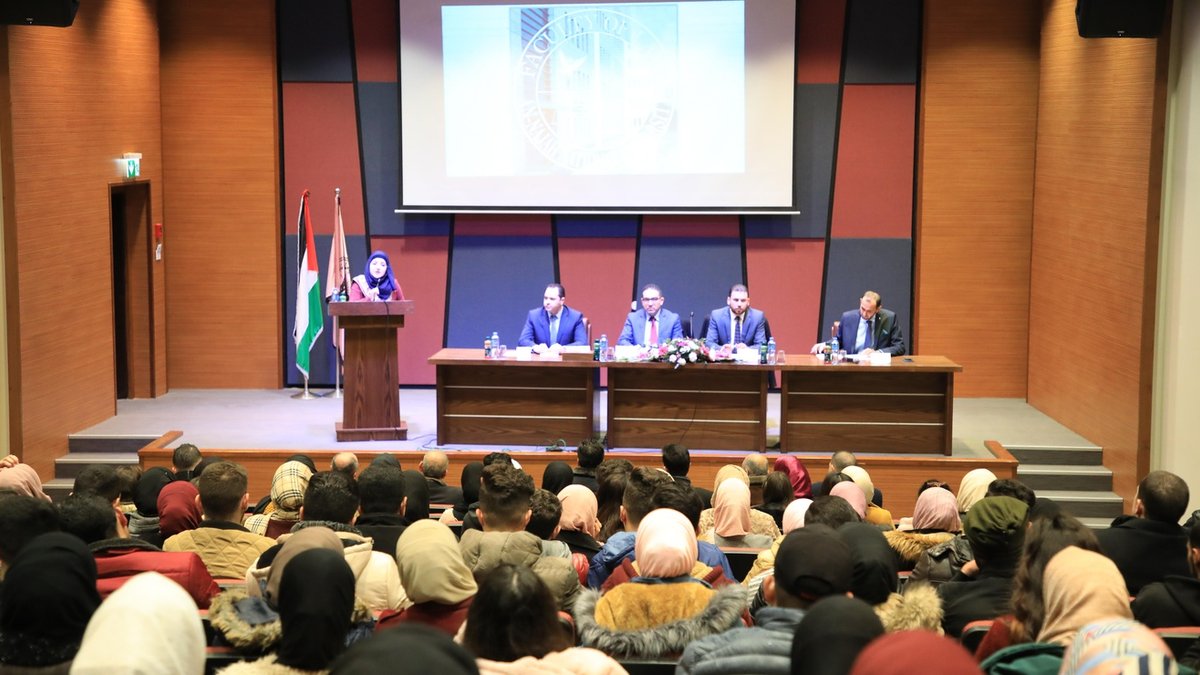
The Faculty of Law organized a workshop titled ‘Should We Continue to Imprison those who are in Debt?’ This workshops aimed at discussing the current law in Palestine that allows for the law enforcement to imprison those who owe money and have failed to pay off their debts in order to explore alternative ways solutions to this issue that are more compatible with the current legal and political contexts within Palestine. The workshop brought legal experts and relevant stakeholders to discuss the legal implications and repercussions of this proposed legal amendment, given the controversy of this subject within the judicial circles in Palestine and worldwide.
The Dean of the Faculty of Law, Dr. Na’em Salameh, opened the workshop and praised the importance of increasing awareness of Palestinian legal developments, particularly on this topic. Dr. Salameh commentated that he expected to bring alternative opinions and recommendations that align with the national economic and social contexts.
Dr. Ammar Dweik, the Director General of the Independent Commission for Human Rights who has a wealth of knowledge on Palestine law and public policy, highlighted the importance of dialogue and critical re-examination of this law in order to provide solutions that maintain social and legal responsibility of the debtors and that are also compatible with international standards on the issue. Dr. Dweik also noted that it is critical to incorporate the participation of the banking sector, the Palestine Monetary Authority, merchants, as well as the legal sector in these discussions since they are all important stakeholders.
This workshop occurred at a time when increasing numbers of people are unable to pay their financial obligations. Currently, an estimated 1200 people are being detained by Palestinian police, including 150 females. Dr. Dweik added that 60% of the debtors are detained for the second or third times consecutively. These figures demonstrate the inefficiency of the debtors’ imprisonment penalty according to Dr. Dweik.
Yousef Abed-Samad, the Legal Consultant of the Ministry of Justice, discussed the newly approved legal agreements including defaulting debtors and the proposed amendments will also preserve the rights of the creditors.
Yazid Makhlouf, the Deputy Director of the Bar Association, discussed the possible risks of this proposed legal amendment. Such risks include the possibility of jeopardizing social security as well as the lack of protections for creditors due to the Israeli occupation. Mr. Makhlouf also explained that the Palestinian law enforcement faces many challenges in investigations of the people who are in debt. Mr. Makhlouf concluded by stating the necessity of brining relevant stakeholders into the decision making process and thoroughly examining and researching the proposed legal amendments before making final legal decisions.
This workshop was attended by different civil society organizations including the Palestinian police, the Chamber of Commerce, the Palestinian Judiciary, as well as lecturers and students from the Faculty of Law.
عدد القراءات: 257





